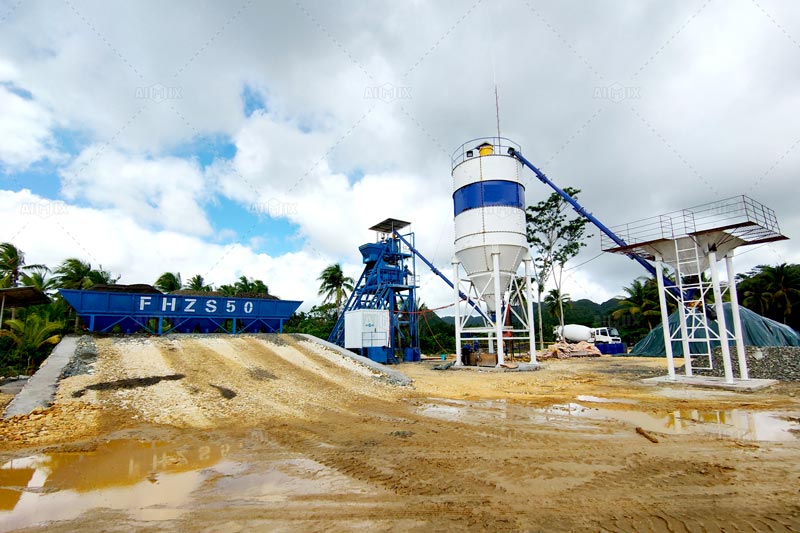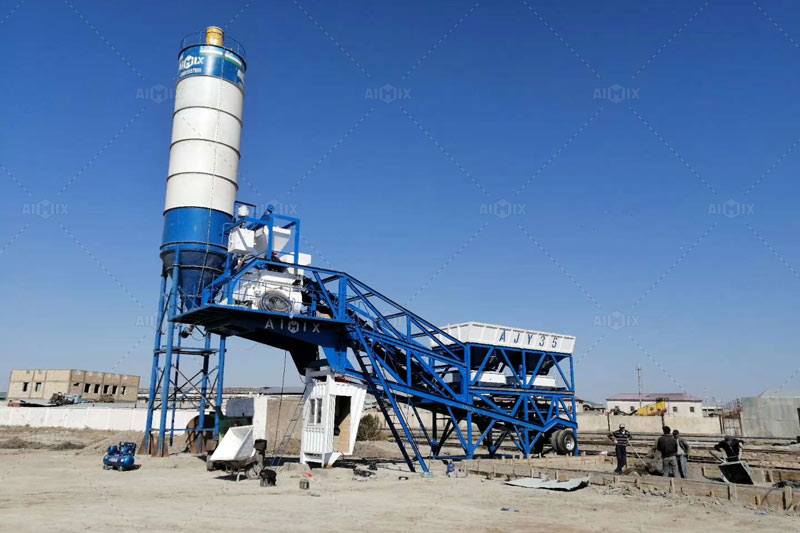Concrete batching plants are the backbone of the construction industry, providing the essential supply of ready-mixed concrete for large-scale projects. When construction demands increase, especially in high-volume production scenarios, batching plants must be able to scale up production without compromising quality or efficiency. This article explores how concrete plants, including stationary and mobile concrete plants, manage high-volume production demands, particularly in regions like concrete plant in Bolivia, where infrastructure projects are growing rapidly.
Key Challenges in High-Volume Concrete Production
High-volume concrete production requires batching plants(planta de concreto) to produce large quantities of concrete quickly and consistently. Construction projects such as highways, bridges, and large commercial buildings demand vast amounts of concrete to meet tight deadlines. The primary challenges in handling these high demands include:
- Consistent Quality: Maintaining uniform quality across large batches of concrete is essential to meet construction specifications.
- Speed: The ability to produce concrete at high speed without sacrificing quality is a key challenge.
- Efficiency: Managing resources like raw materials and labor efficiently to avoid delays or waste is crucial.
- Scalability: The plant must be flexible enough to increase production as demand fluctuates.

Meeting Production Demands with Advanced Technology
To cope with high-volume production demands, modern concrete batching plants are equipped with advanced technology. These innovations not only enhance production speed but also ensure that quality is maintained. The integration of automation, real-time monitoring, and advanced mixing technology plays a critical role in meeting the challenges of large-scale concrete production.
Automated Systems for Faster and More Accurate Production
Automated systems are increasingly being used in concrete batching plants to increase efficiency and reduce human error. These systems can automatically control the batching process, adjusting material proportions and mixing times to ensure consistent results. In plants like the concrete plant in Bolivia(planta de concreto en Bolivia), where infrastructure projects are often on tight schedules, automated systems ensure that production runs smoothly, minimizing delays and improving overall output.
In addition to automation, the use of real-time monitoring systems enables plant operators to oversee the production process from start to finish. Monitoring key parameters such as temperature, humidity, and material consistency helps operators make timely adjustments and avoid quality issues. This is particularly important in high-volume production, where maintaining uniformity in the concrete mix is critical to the structural integrity of the final product.
Flexibility with Mobile Concrete Plants
For high-volume projects that require mobility and flexibility, mobile concrete plants provide an ideal solution. These plants are designed to be easily transported and set up at different job sites, making them ideal for projects that span large areas or remote locations. In markets like Bolivia, where construction projects are often spread across diverse regions, mobile concrete plants allow contractors to provide a constant supply of high-quality concrete, no matter the project’s location.
Mobile concrete plants are particularly advantageous for infrastructure projects like highways and bridges, where the site may change frequently. Their ability to be relocated quickly allows for continuous production without delays, ensuring that the construction project stays on schedule. Despite their portability, mobile plants can still produce large quantities of concrete, making them a valuable tool for meeting high-volume demands.
Scaling Production with Efficient Resource Management
To manage high-volume production efficiently, batching plants need to handle not only the machinery but also raw materials like cement, aggregates, and water. Efficient resource management ensures that production runs smoothly without interruptions, which is essential when large quantities of concrete are required.
Optimizing Raw Material Usage
High-volume production places significant pressure on the raw materials used in concrete production. To cope with this demand, modern concrete plants and mobile type(planta de concreto movil) utilize optimized batching systems that measure material quantities with precision, reducing waste and ensuring that the right proportions of ingredients are mixed. Automated batching systems are able to adjust the amounts of raw materials in real-time based on production requirements, which helps in maintaining the desired quality and volume of the concrete mix.
Additionally, some plants incorporate material management systems that track inventory levels and automatically reorder raw materials when stocks are low, ensuring that production does not come to a halt due to material shortages. This is crucial for large-scale projects where interruptions in concrete supply can delay construction timelines and increase project costs.
Labor Efficiency and Automation
As demand for high-volume production increases, so does the need for labor efficiency. Automated batching plants require less manual labor, which reduces the risk of human error and increases production speed. By automating processes such as material handling, mixing, and transporting, concrete plants can operate continuously with fewer workers on-site, making them more cost-effective and efficient.
In regions like Bolivia, where skilled labor may be in limited supply, automated systems help overcome labor shortages and improve the overall productivity of the plant. The reduced reliance on manual labor also helps mitigate the risks associated with human error, ensuring that production stays on track and meets quality standards.

Conclusion: Efficiently Coping with High-Volume Production Demands
Concrete batching plants are essential to meeting the demands of high-volume construction projects. By incorporating advanced technology, such as automation and real-time monitoring, these plants of AIMIX(Grupo AIMIX) can produce concrete quickly and consistently without compromising quality. Mobile concrete plants further enhance flexibility, ensuring that projects in remote or large areas can still access a steady supply of concrete.
As infrastructure projects continue to grow in countries like Bolivia, having a reliable, efficient concrete plant is essential for meeting production demands and staying on schedule. With the right combination of technology, resource management, and operational efficiency, concrete batching plants are well-equipped to cope with high-volume production requirements and contribute to the success of large-scale construction projects.